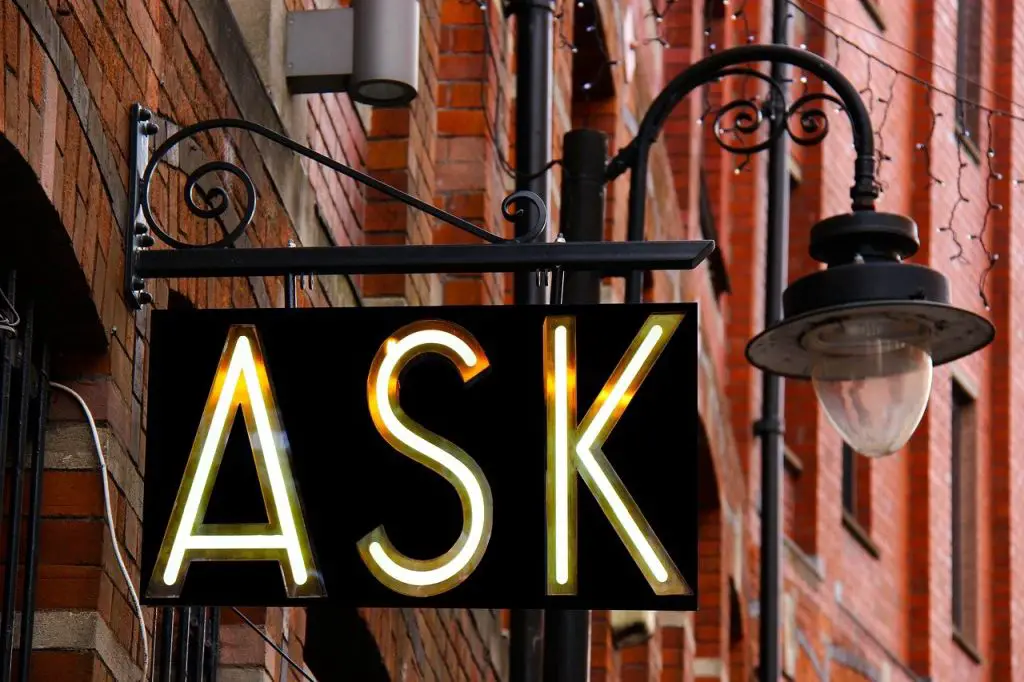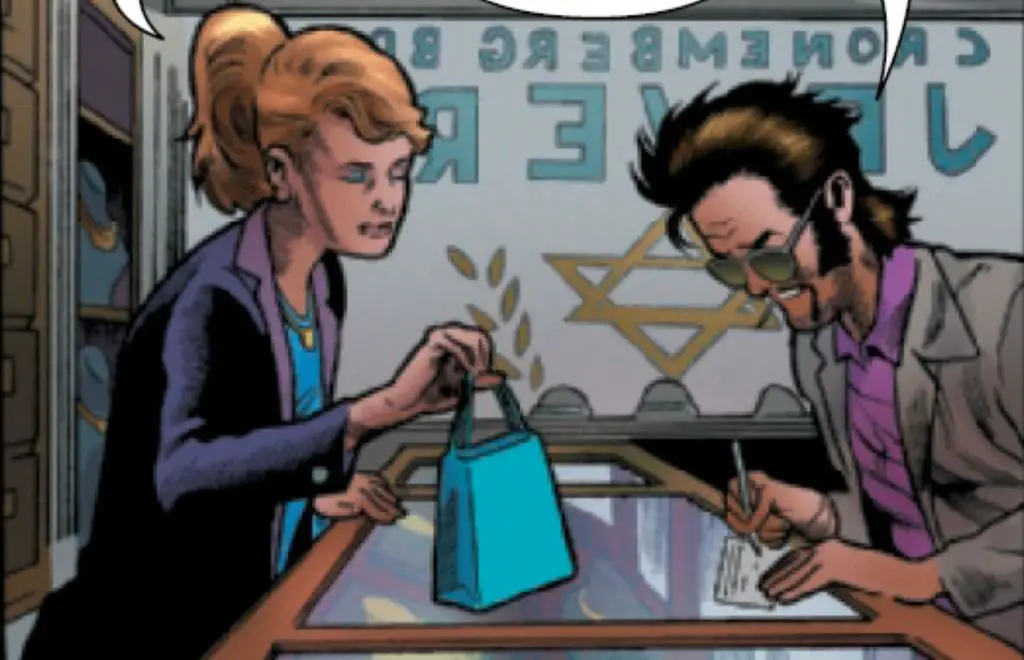A Dispassionate Look at the Immortal Hulk #43 Controversy
In Immortal Hulk #43, published on February 3rd, 2021 by Marvel Comics, a single panel generated all the wrong kinds of attention for perpetuating a negative stereotype. In the panel, artist Joe Bennett depicted a jewelry store facing a city street with the Star of David on the store’s window and a very large “JEWERY” rather than “JEWELRY” emblazoned over the star.
This, of course, generated a large amount of controversy and embarrassment for Marvel and Joe Bennett. But time and distance sharpen perspective, so we’ll take a look at what likely (“likely” when you keep a level head and apply logic, reason, and probability) happened, and what can be done to avoid these situations in the future.
Is Joe Bennett a Racist?

Let’s get this clear right upfront. No, there is no clear reason to conclude Joe Bennett is anything other than an artist that made a very regrettable mistake.
Where I come from, you don’t put the “racist” label on someone unless you’re absolutely sure by knowing them personally and hearing them make racist statements or take definitively racist actions.
The r-word is one of the most heinous labels you can put on a person. I never use it lightly, casually, or without definitive proof. Unless the majority of the world has developed the psychic powers of remote-viewing or mind-reading, only people who know Joe Bennett personally could have an informed opinion about Joe Bennett’s views on race.
I don’t know Joe personally, and therefore he gets the benefit of the doubt.
That said, Joe Bennet and Marvel made a serious blunder. And it all could have been prevented if they avoided doing one thing — making assumptions about cultural norms.
What’s the Difference Between a Stereotype and a Cultural Norm?
By definition, the difference between a Stereotype and a Cultural Norm is very clear, but understanding which is which in practice can be tricky.

What is a Cultural Norm?
A Cultural Norm is a broad generalization about a people group that allows for individual differences among that people group, and there’s no negative intent behind the generalization.
A simple example would be: “People who are natives of China speak Chinese.”
That’s a very safe generalization based on a mix of facts and common knowledge, but it doesn’t preclude exceptions and isn’t used to disparage anyone.
One other point to keep in mind, Cultural Norms change over time. What was considered typical today may not have been considered typical 10 or even 5 years ago. As culture changes and evolves, the norms change with it.
What is a Stereotype?
By contrast, a Stereotype is a broad generalization about a people group that does not allow for individual exceptions and typically (but not always) has a negative aspect to it.
A simple (and very false) example would be: “All Chinese people are bad drivers.”
Of course, this is clearly false because not all Chinese people have the exact same driving ability, and driving skill is based on education. It has nothing to do with race.
This is a quick summary, but if you want a more thorough explanation of the difference between Cultural Norms and Stereotypes, check out this excellent article from afsusa.org.
Is the Immortal Hulk #43 Panel a Cultural Norm or a Stereotype?
Within the context of the comic’s location, it’s a stereotype.
Location matters. If an artist drew a storefront with a Star of David in the window and the store was located in Israel, for example, you wouldn’t necessarily get the same reaction. If the storefront was located in Germany, that would also generate a very different reaction — historically and culturally. In a major American city where the issue of Immortal Hulk #43 is set, it’s not accepted as culturally appropriate.
However, there’s some gray area here for one simple reason. Stereotypes don’t translate accurately to other countries or other cultures through art, and Joe Bennett is an artist native-to and still living in Brazil.
Why Should Where the Artist Comes From Make a Difference?

In this case, it makes all the difference. Why? Unless the artists come from the location and culture in the drawing, it’s nearly impossible to clearly know the difference between all cultural norms and stereotypes.
When all the information used to create the art is obtained second-hand, the artist is forced to make assumptions. As we’ve seen in the case of Immortal Hulk #43, assumptions are dangerous.
Yes, you can Google search an infinite number of topics, but raw data only takes an artist so far. There is no substitute for being there or having somebody who is there check an artist’s work.
If Joe Bennett Isn’t Racist, Why Create the Panel?
Honestly, I don’t know, but if we give Joe Bennett the benefit of the doubt, the likeliest explanation is the simplest one. Joe wanted to give the setting some authenticity, and to him, a jewelry store with Semitic markings was authentic for the issue’s location.
Was it an assumption? Yes.
Was it a good assumption? No
As much as this article so far has focused on Joe Bennett and the Terrible, Horrible, No Good, Very Bad Assumption, the deeper problem lies with another party — Marvel Editorial.
Shouldn’t Marvel Editorial Have Prevented This?
Yes. Yes. A thousand times, yes.
As much as Joe Bennett received the brunt of ire for this snafu, the responsibility lies squarely on Marvel for not stopping the mistake before it went to print. Editors do a lot of things, but let’s get clear on why editors exist.
Artists and writers focus their energy on being creative. Sometimes that means they dream up wacky stuff. Off-color, off-brand, inappropriate, or just plain crazy. The best creations happen when creative people let their juices flow, but the output can be a hot mess.
The editors’ reason for existence is to temper creativity into something that’s sellable; on-brand, on-topic, and marketable. It’s a symbiotic relationship between creator and editor, and both need to do their part.

It’s difficult to comprehend how nobody in Marvel Editorial caught this mistake. It’s more difficult to comprehend when you consider Marvel HQ is located in New York, which is possibly the most diverse city in the world. If anyone should have been in the best position to correct Joe Bennett on his creative choice, it should have been somebody from New York with an awareness of the diverse local cultures.
This article has done a decent job (so far) of explaining how and why Joe Bennett made his mistake. There is not much we can say about Marvel Editorial’s part in this other than they didn’t do their job.
How Do We Prevent This From Happening Again?
Before we talk about prevention, let’s first acknowledge we all make mistakes. We’re human, so it happens. If the mistake is an honest one, say your apologies or accept them graciously when given, and move on.
With that out of the way, here a few things creators and editors can do to prevent another Immortal Hulk #43.
Don’t Do It
That’s right. The best way to avoid controversy is not to dance with it in the first place. This is especially true if the cultural norm written or drawn into the issue is not additive to the story. It didn’t help Joe Bennett’s position that the storefront had no bearing on the scene in which it appeared. Authenticity can give a story a little extra flavor, but if it’s not needed, cut it.
Make Up a Cultural Norm and Location
You’d have to walk a very thin edge on this point but it can be done. One of the (very few) things DC Comics gets right is making up locations to absolve them of local nuance. You can’t say certain streets or neighborhoods in Gotham City aren’t predominantly Puerto Rican, as an example, because Gotham City isn’t real. The same could be said for Metropolis or Smallville or Bludhaven.
Marvel prides itself on being the world outside your window. That closeness to the real world has the benefit of relatability, but getting too close without caution just bit Marvel in the butt. That great power comes with great responsibility, so use it carefully.
When In Doubt, Ask

If you’re an artist or writer and your work makes reference to a particular location, race, religion, or any culturally-relevant event, ask somebody who knows and has been there. Always assume your assumption (yes, I know how that sounds) is false. Google searches won’t cut it. Ask for help, ask for a sanity check, and don’t leave the acceptability of your work to assumptions.
Train Editors to Spot Stereotypes
Yes, spotting these mistakes is everyone’s responsibility, but there’s no role better positioned to catch them than an editor. Publishers, train your editors. Invest in them. Mentor them. Give them the tools and training they need to stop mistakes before they ever see the light of day.
What About Sensitivity Readers?
Sensitivity Readers have their place, but they don’t work very well for monthly comics publishing for two reasons:
Scale
All it took to turn a single issue of Immortal Hulk #43 into a PR disaster for Marvel was one, bad panel. A larger publisher puts out between 20 and 80 individual comics a month resulting in thousands of panels to be reviewed. It would take a small army of sensitivity readers to cover it all at a tremendous cost increase to the publishers.
Sensitivity is everyone’s responsibility, and so the money is much better-spent training editors to incorporate sensitivity awareness into their regular routine. Again, publishers should be investing in their editors.
Avoidance
When a publisher has people on staff whose specific role is “sensitivity reader,” there will always be a natural tendency of editors to defer judgment and responsibility to the sensitivity reader. It becomes a check rather than a shared responsibility.
It’s natural and unavoidable. And when that inevitable mistake happens again, the editorial will naturally think “It’s not my fault. We have a sensitivity reader to catch these things.” To make sensitivity awareness truly part of the publishing process, everyone has to share the responsibility.
Final Thoughts
The first print of Immortal Hulk #43 contains an unfortunate panel that’s created a ton of trouble for the artist and publisher, but out of adversity comes an opportunity for positive change.
First, creators can make bad assumptions. Unless there is a confirmed intent of malice behind making culturally insensitive content, better to accept the mistake is honest rather than labeling somebody as racist or xenophobic or any other scarlet letter that could be unfairly damaging to their reputation. If you don’t know them personally, you don’t know their heart, so don’t assume malice.
Second, recognize that there are differences between cultural norms and stereotypes that are not always obvious. Telling the difference between the two becomes exponentially harder when the creator is outside the cultural locations. Never assume a cultural norm is okay to put into a comic without asking for help from an informed source.
Next, editors are increasingly critical to ensuring cultural sensitivity is recognized and addressed for every publisher. Publishers, never assume your editors have all the training and tools they need. Invest in your editors.
Finally, sensitivity is everyone’s responsibility. Never assume somebody else will catch the mistake.
We hope you found this article interesting. Come back for more reviews, previews, and opinions on comics, and don’t forget to follow us on social media:
If you’re interested in diverse works, remember to let your Local Comic Shop know to find more of their work for you. They would appreciate the call, and so would we.
Click here to find your Local Comic Shop: www.ComicShopLocator.com

